Why Does Your Cat Hiss But Act Like He Still Loves You?
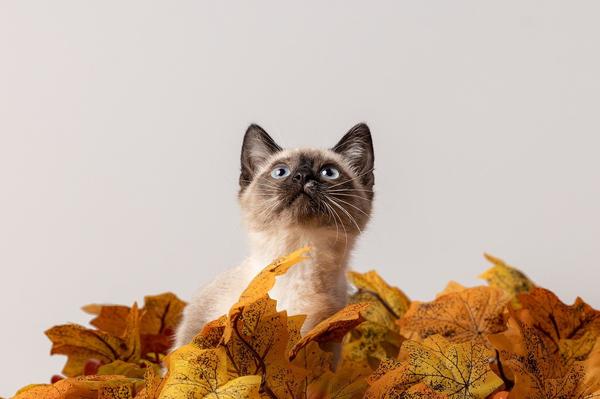
Just imagine:
You're chilling on the couch, trying to bond with your furry feline friend, when all of a sudden, hiss...
Your heart skips a beat, your concern levels skyrocket.
But fear not, curious cat lovers, there's more to this hissing story. 😺
Keep reading.
Why Does My Cat Hiss at Me Then Cuddle?
Cats hiss when startled or anxious, but quickly seek comfort from their human companion. Recognize their body language, give them space, and educate children on gentle petting. Consult a vet if hissing seems abnormal. Create a stress-free environment to manage their anxiety and enjoy cuddles with your feline friend.
When your cat hisses at you, it can be perplexing. But don't worry, let me explain.
Cats hiss for various reasons, often when they're startled. They quickly calm down and look for love from their human companion, which could be you!
Hissing is a way for cats to communicate anxiety or the need for personal space.
To understand what your cat is saying, pay attention to their body language. Flattened ears and a puffed-up tail mean something's bothering them.
Recognize these signals and respect their boundaries.
If your cat hisses, give them space.
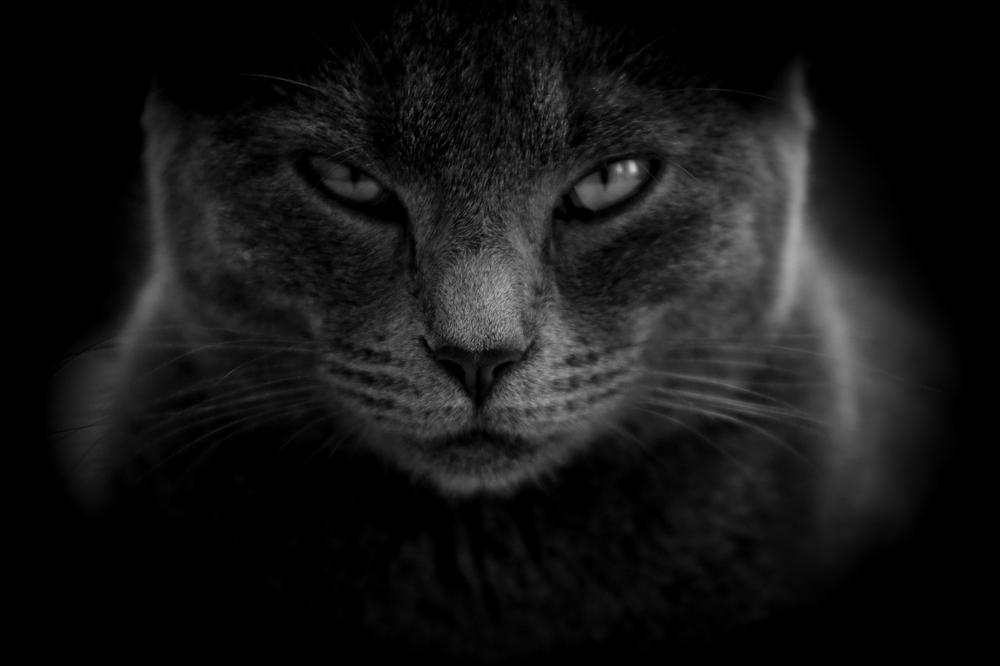
Forcing affection will only make things worse.
Educate your kids on how to handle cats properly—gentle petting is key!
If your cat's hissing seems abnormal, consult a vet to rule out any health issues.
To ease their anxiety, offer rewards and positive reinforcement.
A happy cat doesn't hiss.
Creating a stress-free environment with socialization and hiding spots helps manage their anxiety.
Now that you know why your cat hisses but wants cuddles, handle it gracefully.
Stay cool and love your feline friends! 😺
Main points I'll expand upon further down this article:
- Cat hissing is a normal way for cats to express their emotions.
- Hissing can occur due to fear, discomfort, rage, or health problems.
- Hissing serves as a warning before aggressive or defensive behavior.
- Excessive hissing may be a sign of underlying medical problems.
- Backing away from a hissing cat is advised to prevent injuries.
- Seek professional help from a feline behaviorist for frequent conflicts.
- Punishing cats for hissing will worsen the situation.
- Gradual introductions and providing a safe space can reduce hissing behavior.
- Desensitization and counterconditioning can help cats overcome fear of other pets.
- Hissing can be a normal part of cat communication and play behavior.
Now that you understand why your cat hisses at you but still wants cuddles, you should remember that their hissing is always triggered by an underlying cause...
Unraveling the Mystery of Cats Hissing for No Reason
Cats hissing without a clear reason can leave you totally confused.
Keep in mind, though: cats don't just hiss for no reason.
There's always something going on behind those intense sounds.
Hissing is their way of communicating their emotions - fear, discomfort, rage, or even health issues.
It could be triggered by something as simple as a sudden noise or movement that startles them.
So ensure you watch out for any potential triggers in your cat's environment.
Hissing is also a warning sign before they get aggressive or defensive. Some cat breeds might hiss more often than others.
But what if the hissing seems excessive and you can't figure out why?
It could be worth considering the possibility of an underlying medical issue.
It would definitely not be wise to ignore this possibility.
Get it checked out quickly.
If hissing causes frequent conflicts at home, it might be wise to seek help from a professional feline behaviorist.
They've got experience and knowledge to evaluate the situation and find effective solutions.
Punishing your cat for hissing will only make things worse.
Focus instead on helping your cat feel safe and confident. This means addressing any fears, stress, or anxiety they may have.
This approach involves making changes in their environment, providing hiding spaces, engaging in activities that keep them entertained, and creating a less threatening atmosphere.
Lastly, if your cat's hissing escalates into violent behavior, don't hesitate to get veterinary help.
Your cat's well-being should always come first.
Understanding why your cat hisses can help you create a peaceful and stress-free environment for both of you.
Stay patient, observant, and proactive in meeting their needs.
Allow me to drive this home: There's more to discover about cat hissing further down the blog post. Keep reading to find out what cat hissing sounds like and gain a deeper understanding of your furry friend's communication signals.
And now, let's delve into a common cause of hissing...
Introducing a new pet to your cat!
Why Is My Cat Hissing at the New Pet?
Cats hiss at new pets to establish boundaries and assert their territory. It's normal and temporary. Patience is key as they adjust. Provide a safe space for your cat to retreat to when overwhelmed. Eventually, they will become friends or at least tolerate each other.
Cats hissing when meeting new pets is totally normal. It's just their way of saying, "Hey, back off and respect my turf!"
But don't freak out, it's not a big deal.
As your cat gets used to the new pet, the hissing will probably calm down.
Just be patient and take it slow.
That's the key.
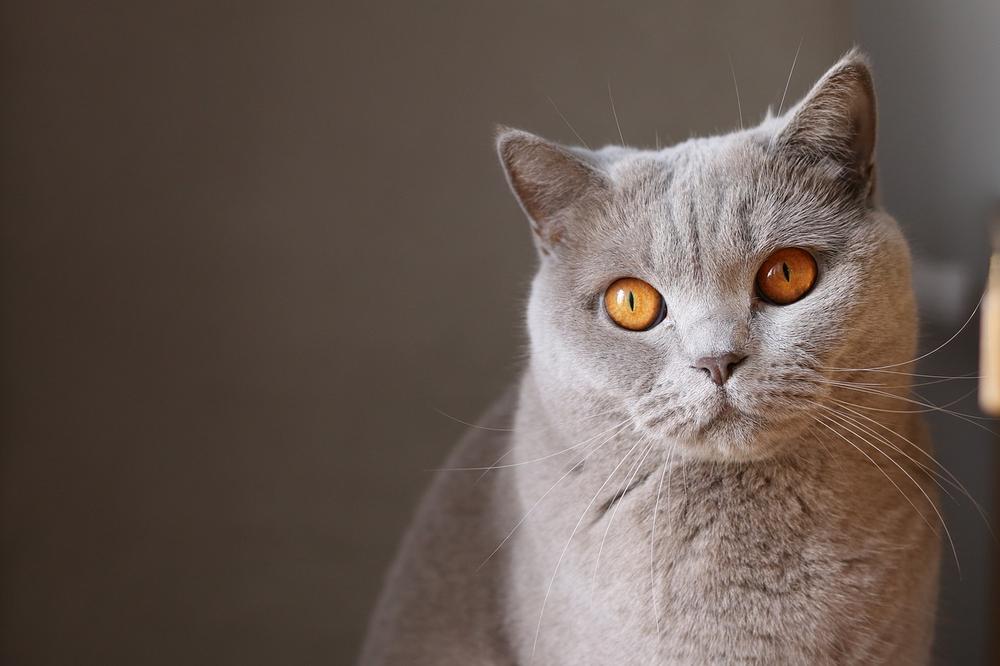
If there are other changes in your cat's life or they're feeling anxious, they might hiss more often too.
To help them feel more secure, give them their own special spot to escape to when things get overwhelming.
With time and a little understanding, your cat and the new addition will eventually be buddies (or at least tolerate each other).
But what happens when it's not just a new pet that your cat is hissing at?
Dogs, for example, may require a different approach since they communicate in a language foreign to our feline friends.
So, how can you bridge this gap and create harmony between your cat and dogs?
That's where the next section comes in!
Why Is My Cat Hissing at My Dog?
When it comes to cats and dogs, they have their own way of communicating.
Cats hiss at dogs to establish personal boundaries and ask for space. But don't worry, I've got some solutions for you.
Make sure your cat has places to escape to when things get intense.
A hiding spot or a high perch can really help them take a breather from all the doggy chaos.
Now, this is important, so pay attention:
Desensitization and counterconditioning are powerful tools that can help your hissing cat learn to peacefully coexist with dogs or other unfamiliar pets.
And hey, don't forget to talk to your kids about how to safely interact with our feline friends.
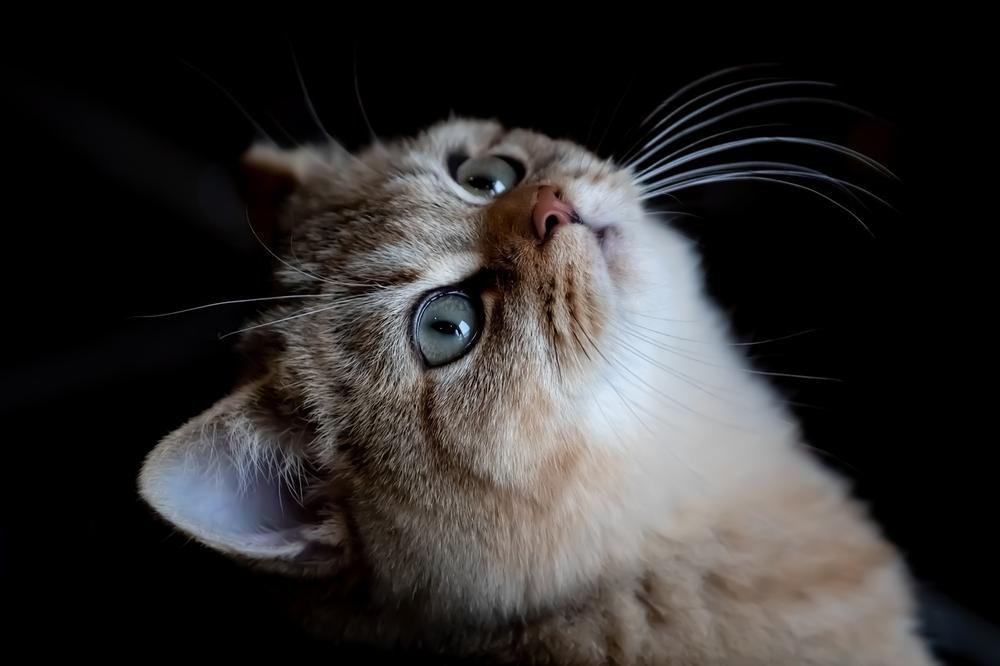
This will prevent any unwanted incidents that may make your cat hiss even more.
So there you have it.
Keep these tips in mind and enjoy some harmonious cat-dog vibes in your household.
Good luck!
And here's the deal...
While cats hiss at each other for specific reasons, they may sometimes exhibit this behavior even when being friendly.
But what about those hissing episodes between cats and dogs?
Well, hold on to your seats because the next section will unravel the fascinating dynamics of cat-dog interactions and why hissing may come into play.
You won't believe what you're about to discover!
Why Do Cats Hiss at Each Other?
Are you sitting there, giving your adorable little feline friend some love and then out of nowhere, hiss!
What on earth just happened?
Well, let me tell you something: cats hiss for many reasons, but one thing is crystal clear:
It's a way for them to say, "back off" or "I'm in charge here" without any doubt.
You see, when cats hiss at each other, it all boils down to territory and hierarchy.
Cats are extremely territorial creatures, and hissing is their way of setting boundaries and making sure everyone knows who's the boss.
One common trigger for hissing is when unneutered male cats face off against each other or encounter an unsprayed female-cat-on-the-prowl looking for love.
But it's not just about romantic tensions.
Hissing can also arise during turf wars, encounters with other animals, or even after a visit to the vet (let's be honest, we've all hissed a little after a trip to the doctor).
And guess what?
Hissing isn't limited to indoor cats. Outdoor cats use it as a tool to establish dominance within their colonies too.
So, if you find yourself caught in the middle of a hissing showdown, here are a few things you can try.
Firstly, try redirecting their attention with a toy. Sometimes a bit of playtime distracts them from their territorial feud.
If that doesn't work, gently separate the cats and give them some time to calm down.
Sometimes, all they need is a timeout.
Hissing is a normal part of cat communication, but you should keep an eye out for any escalating conflicts.
Your top priority should always be safety.
So, next time you witness a hissing spat, don't panic.
It's just your cat being a cat, doing what comes naturally – asserting their presence in the world.
Simply give them some space and let them sort it out on their own terms.
Furthermore, if you've observed your cats hissing at each other and you're seeking answers as to why your cat may be exhibiting aggressive behavior towards her kittens, I highly recommend checking out my article.
In Why Is My Cat Hissing and Growling at Her Kittens, I delve into the reasons behind this type of behavior.
Don't let your curiosity go unanswered – explore my guide for insights into your cat's behavior and discover effective ways to address any concerns you may have.
Can Cats Hiss in a Playful Way?
Do cats hiss when they play?
Yes, they do.
- Hissing during play: When kittens get super excited or stimulated during play, they might let out a hiss. It's their way of showing how pumped up they are.
- Mistaken for aggression: Sometimes humans mistake this playful hissing for aggression or fear because they don't really get cat behavior.
- Hissing during mating: Female cats can also hiss when they're getting it on, while non-neutered males use hissing to flex their fighting skills.
- Part of normal communication: Hissing is just one piece of the puzzle when it comes to cat communication. Cats also communicate through things like movement, eye contact, head bumps, and swatting.
- Learning to hiss: Kittens start learning to hiss at around two weeks old, and it's super important for them to socialize during that time.
- Not always an increase in hissing: Just because a cat is vocal doesn't mean it will hiss more. Some breeds are just chattier than others, you know.
- Don't hiss back: Whatever you do, avoid hissing back at your cat. It freaks them out and causes fear, stress, and conflict.
- Playful teasing and rough play: If you tease your cat in a playful way or engage in rough play with them, they might hiss. Totally normal for playful cats, though!
- Decreasing hissing behavior: To reduce hissing, try having positive interactions with your cat, giving them exercise, and playing with them. However, keep in mind that they still might hiss if they feel overwhelmed or stressed during playtime.
Bottom line, understanding your cat's behavior is key to forming a strong and enjoyable bond with your furry buddy!
But, while hissing may typically indicate anger or discomfort, you ought to remember that there are also instances where cats hiss in a more playful manner!
Now, let's delve deeper into the reasons behind cat hissing and the different contexts in which it occurs...
What Does Cat Hissing Sound Like?
A cat's hissing sound is like a prolonged ssss or low growling noise, and it signals anger, discomfort, or a warning.
You'll often see a hissing cat with an open mouth, bared teeth, flattened ears, and raised fur along its back.
But that's not all - cats also have another intense warning sound: spitting. Imagine a hiss turned up to 11.
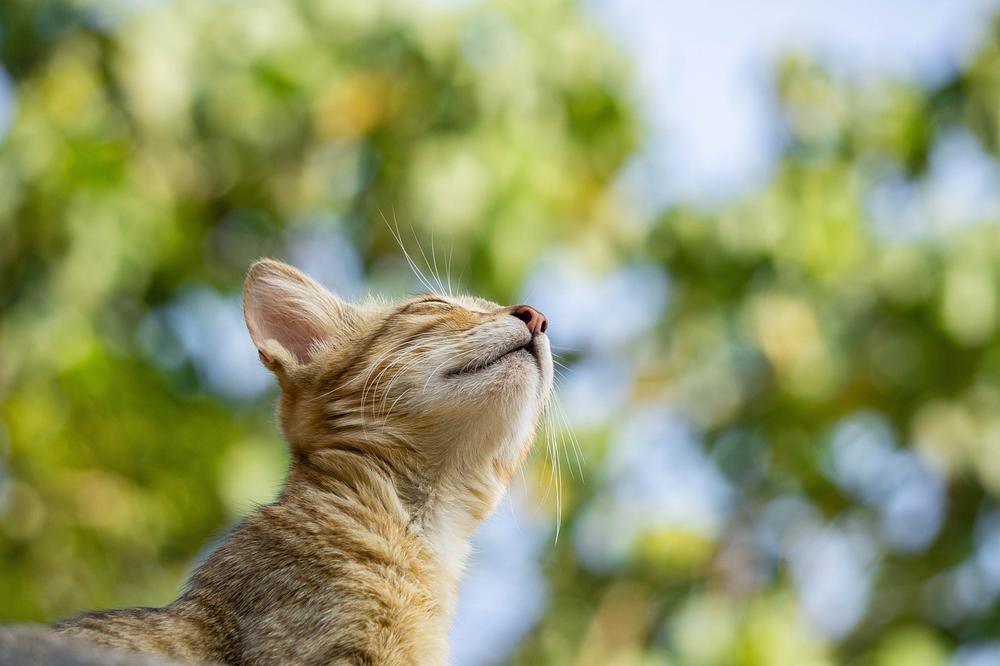
That's what spitting sounds like from a cat.
However, if you hear a cat growling, be warned - it's an even stronger indication of danger.
Its purpose may be to frighten or warn potential aggressors.
Beware the mighty vocalizations of these fierce felines.
And that wraps up today's article.
If you wish to read more of my useful articles, I recommend you check out some of these: Why Is My Cat Afraid of Plastic Bags, Do Cats Purr When Stressed, Cat Behavior After Mating, and Why Do Cats Hate Aluminum Foil
Talk soon,
-Sarah Davis